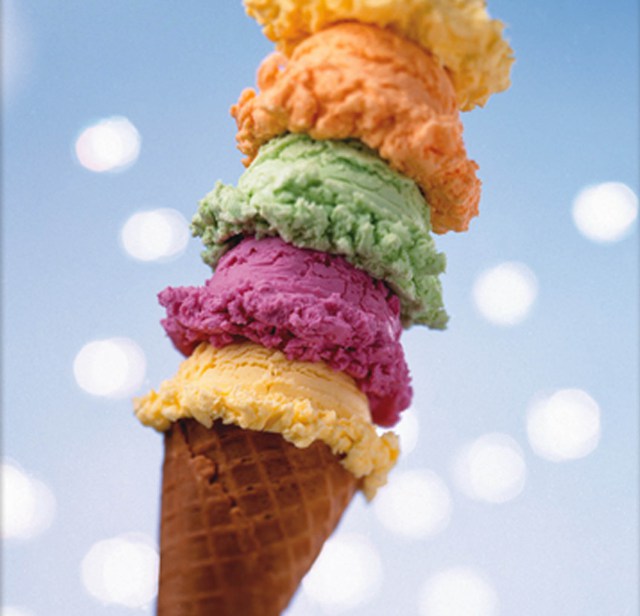|
I am a sugar addict.
It’s not glamorous, but I’m not embarrassed about it either. It’s simply my truth. Admitting sugar addiction is not something you could throw out there all that long ago and be taken seriously, but now it’s been proven ad infinitum that sugar is a drug, and that some brains respond to it as if it were morphine or heroin. There are still naysayers, some who scoff at the idea of sugar “addiction.” You know the kind. The people who think you’re not strong enough, disciplined enough, or willpowery enough to just buckle down and quit eating it. If it were really that simple, don’t you think everyone would? I don’t concern myself with negative-type disbelievers. I have lived this nightmare for decades. I know how very real it is for me, and others. More perhaps as my brain responds to several substances like an addict. I have overcome all of my addictions so far. . . except this one. January is typically a remorse-fest for sugar addicts after negotiating a debilitating holiday season that runs from Halloween through New Years. By the time January rolls around, most sugar addicts are fatter, sicker, and full of self-loathing. But also resolve. This will be the year I kick the habit. This time, I will succeed. This will not kill me — I’m smarter than that. Most of us develop some sort of plan of attack so we’re poised and prepared to overcome this almighty obsession. And many of us will get a foothold on “sobriety” that lasts days, weeks, even months. Some won’t make it through the first day because of withdrawal symptoms, emotional situations or that insidious addict voice deep inside luring us back to the sweets. I’ve have successfully strung together months — once even years — of sugar-free living. Since I still falter, I continually seek information (enlightenment), try new things (sometimes crazy), and pray (divine help would be perfect). Information is power, although for an addict, information doesn’t equal a cure. With sugar, not only is the substance everywhere — making it hard to escape — it’s acceptable, accessible, and often pushed on you. Oh yes, the sugar pushers are as real as the drug pushers. No one wants to eat cake alone. There are also a number of physical triggers, such as hormones, which can foster cravings for sweets, or when balanced, keep cravings at bay. I sometimes struggle with saying no, or feeling like a freak, but my biggest roadblock is my emotions. I have a threshold for feeling my feelings and once it’s crossed, my brain starts sending me images of ice cream, a favorite candy bar, or other foods that bring me comfort. I can initially fend it off, but at some point, I will reach a place where the two points intersect and I will make the choice (although it doesn’t often feel like one) to eat something for relief. In an effort to feel normal, I sometimes let even healthy folks give me the green light. A doctor recently suggested I not binge on spinach as it would conflict with some medicine I was taking. I snorted, responding, “Doc, I’m pretty sure no one binges on dark leafy greens. More like chocolate.” To that, he told me to eat as much of that as I wanted. Bingo. Instant permission. From a doctor no less. Here’s what I know. My body responds to sugar like it’s king. Just the thought of it makes my heart race, my pulse quicken, and I can feel my cells opening up like a giant Venus flytrap, ready to receive the riches. Then it takes me for a roller coaster ride. I feel immediate relief and sometime a high, followed by a headache, bellyache, brain fog and fatigue. Oh right, I’ll remember. It’s really this. It’s not so grand after all. The remorse sets in. Then the shame. Then the cravings. Then the other cunning behaviors that keep me eating it day after day until I jump off the sugar train while it’s still moving at full speed, practically a suicide mission. Among the multitude of literature on the subject, “The Hunger Fix” by Pam Peeke sheds a lot of insight into this addiction. Peeke suggests sugar is a “false fix” and roadmaps how to create healthy fixes, which is what our body actually wants, craves and thrives on. The science is fascinating and validating. The tips are helpful and logical. When I am truly clean and sober in all ways, and fueling myself with healthy life-giving foods, I feel fantastic. And I believe, as Glennon Melton writes, that “we can do hard things.” So I’ll keep trying — because I know I will beat this, and because I’m worth it. This column was published in The Journal on Sunday, January 11.
1 Comment
2/11/2015 05:10:02 am
I've accepted my addiction, as you describe it here, and have mostly manage to overcome it by eating the French way; i.e. everything in moderation, including moderation.
Reply
Leave a Reply. |
Summary
A collection of columns, articles and general a-musings. Archives
July 2024
|
Katherine Cobb


